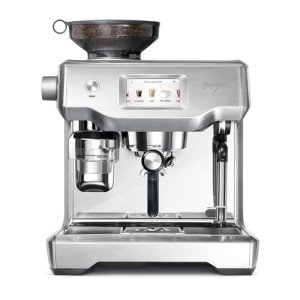Home Use Espresso Machines: What Nobody Is Talking About

Home Use Espresso Machines: A Comprehensive Guide
Espresso machines have actually become a staple in many homes as coffee enthusiasts look for to duplicate café-quality brews in the convenience of their kitchen areas. The increase in appeal has led to a varied market filled with various designs, features, and rates. This post intends to offer a helpful introduction of home use espresso machines, assisting readers navigate their options efficiently.
Understanding Espresso Machines
Espresso machines work by forcing hot water through finely-ground coffee under high pressure, leading to a focused coffee drink called espresso. There are a number of types of espresso machines classified based on their developing methods and level of automation. The most common types include:
- Manual Espresso Machines: These require the user to manage the pressure and water flow, enabling a more hands-on coffee-making experience.
- Semi-Automatic Espresso Machines: These use automatic control over water pressure, while the user by hand grinds and tamps the coffee.
- Automatic Espresso Machines: With the push of a button, these machines immediately manage the flow of water, making it much easier to brew espresso with consistent outcomes.
- Super-Automatic Espresso Machines: These all-in-one machines manage grinding, tampering, brewing, and even milk frothing, making them ideal for users looking for convenience.
- Capsule or Pod Machines: These use pre-packaged coffee pods to produce espresso with minimal effort, but they restrict choice in developing strategies and tastes.
Table: Comparison of Espresso Machine Types
| Type | Control Level | Ease of Use | Cleaning up Level | Perfect For |
|---|---|---|---|---|
| Manual | User-controlled | Moderate | High | Coffee perfectionists |
| Semi-Automatic | Partial automation | Moderate | Moderate | Home baristas |
| Automatic | Totally automated | Easy | Low | Busy people |
| Super-Automatic | Completely automated | Extremely easy | Extremely low | Convenience hunters |
| Capsule/Pod | Totally automated | Really simple | Very low | Casual drinkers |
Secret Features to Consider
When choosing a home use espresso machine, it's necessary to think about numerous features that can significantly affect the quality of espresso and user experience.
- Pressure: Look for machines that offer at least 9 bars of pressure, as this is thought about ideal for developing espresso.
- Boiler Systems: Single vs. dual boiler systems figure out temperature stability and the ability to brew espresso and steam milk at the same time.
- Grinder: Integrated grinders permit freshly ground coffee, which improves flavor. Think about machines with adjustable grind settings.
- Milk Frother: For those who delight in coffees and lattes, an integrated steam wand or automatic frother is vital.
- Size and Design: Consider your kitchen area and aesthetic preferences. Machines come in different sizes, from compact to large setups.
- Cost: Home espresso machines can range from a few hundred to numerous thousand dollars, so it's essential to develop a budget before checking out alternatives.
Benefits and drawbacks of Home Use Espresso Machines
| Pros | Cons |
|---|---|
| Benefit of brewing coffee in your home | Initial financial investment can be high |
| Quality of espresso is frequently superior | Requires some ability, specifically with manual machines |
| Ability to explore tastes | Maintenance and cleaning can be labor-intensive |
| Can conserve money in the long run | Not all machines will suit every coffee choice |
Maintenance and Cleaning Tips
Preserving an espresso machine is vital for extending its life and guaranteeing consistent brew quality. Here are some beneficial ideas:
- Regular Descaling: Minerals from water can develop up in the machine. Descale every 1-3 months, depending upon water firmness.
- Daily Cleaning: Rinse portafilters, baskets, and steam wands after each use to avoid coffee oils from developing residue.
- Use Filtered Water: This can assist lower mineral buildup and enhance the taste of coffee.
- Change Gaskets and Seals: These components might wear in time and must be replaced to keep pressure and performance.
- Check out the Manual: Each machine has specific care guidelines; following these will make sure longevity.
Frequently Asked Questions About Home Use Espresso Machines
Q1: What is the best budget espresso machine? click through the up coming internet page depends upon private needs, but models like the DeLonghi EC155 or the Breville Bambino are popular among users for supplying excellent worth. Q2: How long do home espresso machines usually last?With proper maintenance, home espresso machines can last anywhere from 5 to 15 years, depending upon the quality of the machine and frequency of use. Cappuccino Machines : Can I make cappuccinos and lattes with any espresso machine?While most espresso machines can make coffees and lattes, having a reliable
steam wand or frother is vital for achieving the right milk texture.
Q4: Are super-automatic machines worth the investment?For those who prioritize convenience and quick brewing, super-automatic machines can be worth the financial investment, though they may do not have some customizability in brew strength and taste. Q5: What types of coffee beans are best for espresso?While individual choice plays a role, beans identified as" espresso "blends are generally roasted darker, creating abundant tastes and a creamy texture when brewed.
Investing in a home espresso machine can change the day-to-day coffee routine into something unique, elevating home brews to café quality. By understanding the various kinds of machines, crucial features to think about, maintenance needs, and weighing the
pros and cons, consumers can make informed choices that fit their individual preferences. As the espresso culture continues to grow, no matter the choice, every brew can be a tasty experience waiting to be savored.

